Upcoming Speakers
Sherri Goodman
July 15, 2025
Topic: Arctic Security in a Changing Environment
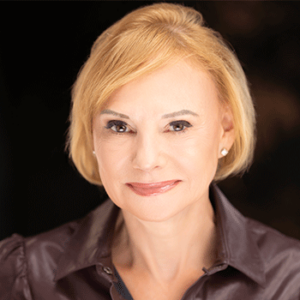 A pioneer in sustainability and national security, Sherri Goodman is among the most respected international voices on emerging global risks, including energy and climate security, environment and public health. The Pentagon’s first-ever Deputy Undersecretary of Defense (Environmental Security), Sherri led efforts to transform the Department of Defense into a leader in sustainability, climate resilience and advanced energy. Today she serves as Secretary General of the International Military Council on Climate & Security. Her book, Threat Multiplier: Climate Change, the Military and Fight for Global Security, gives readers an inside account, from the Pentagon to the battlefield, of today’s military on the front lines of a changing climate, the energy transition, technology upheavals and new health challenges.
A pioneer in sustainability and national security, Sherri Goodman is among the most respected international voices on emerging global risks, including energy and climate security, environment and public health. The Pentagon’s first-ever Deputy Undersecretary of Defense (Environmental Security), Sherri led efforts to transform the Department of Defense into a leader in sustainability, climate resilience and advanced energy. Today she serves as Secretary General of the International Military Council on Climate & Security. Her book, Threat Multiplier: Climate Change, the Military and Fight for Global Security, gives readers an inside account, from the Pentagon to the battlefield, of today’s military on the front lines of a changing climate, the energy transition, technology upheavals and new health challenges.
A summa cum laude graduate of Amherst College, she earned a law degree from Harvard Law School and a masters in public policy from the Harvard Kennedy School of Government. She received an Honorary Doctorate in Humane Letters from Amherst College in 2018. She received a Lifetime Achievement Award from the Environmental Peacebuilding Association in the Hague in 2024.
Farah Pandith
August 11, 2025
Topic: SOFT POWER — How We Win: The Threat from Hate and the Power of Compassion
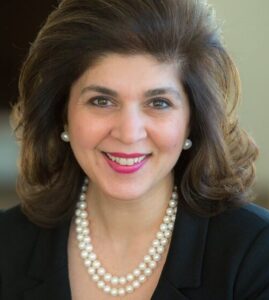 Farah Pandith is a foreign policy strategist and former diplomat. A world-leading expert and pioneer in countering violent extremism, she is the author of the book How We Win: How Cutting-Edge Entrepreneurs, Political Visionaries, Enlightened Business Leaders, and Social Media Mavens Can Defeat the Extremist Threat. She is a frequent media commentator and public speaker, and has written for publications including The Economist, The Washington Post and The New York Times.
Farah Pandith is a foreign policy strategist and former diplomat. A world-leading expert and pioneer in countering violent extremism, she is the author of the book How We Win: How Cutting-Edge Entrepreneurs, Political Visionaries, Enlightened Business Leaders, and Social Media Mavens Can Defeat the Extremist Threat. She is a frequent media commentator and public speaker, and has written for publications including The Economist, The Washington Post and The New York Times.
Farah served as a political appointee under three presidents – most recently as the first-ever Special Representative to Muslim Communities, serving both Secretary Clinton and Kerry. She has served on the National Security Council, at the U.S. Department of State, and at the U.S. Agency for International Development in various senior roles. She was appointed to the Department of Homeland Security’s Advisory Council, chairing its countering violent extremism task force.
She is currently a senior fellow at the Council on Foreign Relations and an adjunct professor at Georgetown University. She serves on leadership or advisory boards of organizations including We Are Family Foundation, America Abroad Media, The Asian American Foundation, USC Center on Public Diplomacy, and the Institute for Strategic Dialogue. Over the last decade she has been a senior fellow at the Belfer Center for Science and International Affairs at the Harvard Kennedy School, a senior advisor with the Anti-Defamation League and a senior advisor at the Milken Center for Advancing the American Dream. In 2020, the Muhammad Ali Center named Farah the first-ever Muhammad Ali Global Peace Laureate for her proven track record of and commitment to promoting humanitarian values; she is the creator and catalyst for the Muhammad Ali Index on Compassion.
Farah received an A.B. from Smith College and a Master of Arts in Law and Diplomacy from the Fletcher School of Law and Diplomacy. Farah was born in India and raised in the Commonwealth of Massachusetts.
Carla Canales, Mohamed Bouabdallah, and Michaela Schweitzer-Bluhm
Sunday, September 7 at 3PM (in the Camden Opera House)
Topic: SOFT POWER — An Essential Element of Foreign Relations
 |
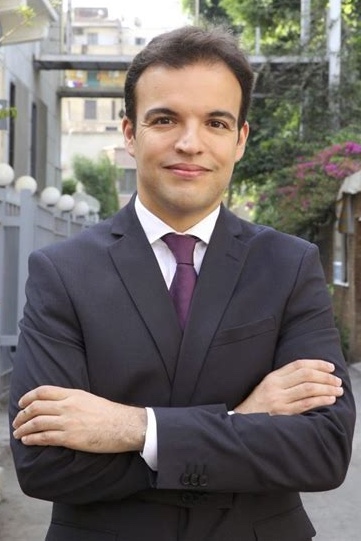 |
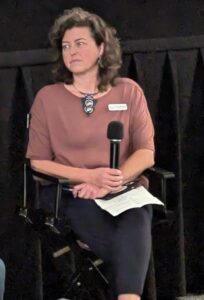 |
||
| Carla Canales | Mohamed Bouabdallah | Micaela Schweitzer-Bluhm |
Soft power, a term coined by Joseph Nye in the 1980s, is the ability to influence others through appeal and attraction instead of by resorting to coercive pressure through military or economic threats or actions. Cultural exchanges are a significant tool in projecting soft power. American opera singer and diplomat, Carla Canales, and French diplomat, Mohamed Bouabdallah, who have decades of experience in organizing and participating in cultural exchange events, will share their experiences and insights into the impact and value of these events in the conduct of foreign relations. Forum member, Mica Schweitzer-Bluhm, a retired US Senior Foreign Service Officer who organized “soft power” events as part of her duties at US embassies abroad, will moderate the conversation between Ms. Canales and Cultural Counselor Bouabdallah.
Ambassador Christopher Hill
October 13, 2025
Topic: Foreign Policy Challenges in Uncertain Times
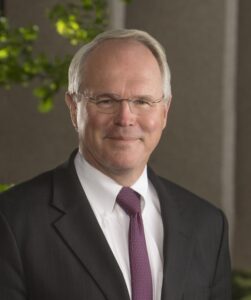 Ambassador Christopher R. Hill is a professional American diplomat who has served under seven presidents since entering the U.S. Foreign Service in 1977. Hill is a five-time ambassador across multiple regions in Senate-confirmed positions, including as ambassador to Iraq, the Republic of Korea, Poland, North Macedonia and most recently to the Republic of Serbia until January 2025.
Ambassador Christopher R. Hill is a professional American diplomat who has served under seven presidents since entering the U.S. Foreign Service in 1977. Hill is a five-time ambassador across multiple regions in Senate-confirmed positions, including as ambassador to Iraq, the Republic of Korea, Poland, North Macedonia and most recently to the Republic of Serbia until January 2025.
He was also Assistant Secretary of State for East Asian and Pacific Affairs under Presidents George W. Bush and Barack Obama. As the senior U.S. negotiator, Hill led U.S. efforts at the Six Party Talks to end North Korea’s nuclear weapons program in 2005-2009. Earlier, he was a lead State Department negotiator in Dayton, Ohio, the process that ended the war in Bosnia. Later, he was the U.S. special envoy in negotiations that led to the end of the Kosovo war. In addition, Hill served as a senior director in the National Security Council staff and as a special assistant to President Clinton.
He earned a BA at Bowdoin College and MA from the Naval War College. Outside of the foreign service he was the Dean of the Korbel School at the University of Denver and taught at Columbia University. He began his career as a Peace Corps volunteer in West Africa.
Mike Block, Balla Kouyaté, and Edward Pérez
Thursday, October 30 at 7PM (in the Camden Opera House)
Topic: SOFT POWER — The Musical Ambassadors of Silk Road
 |
 |
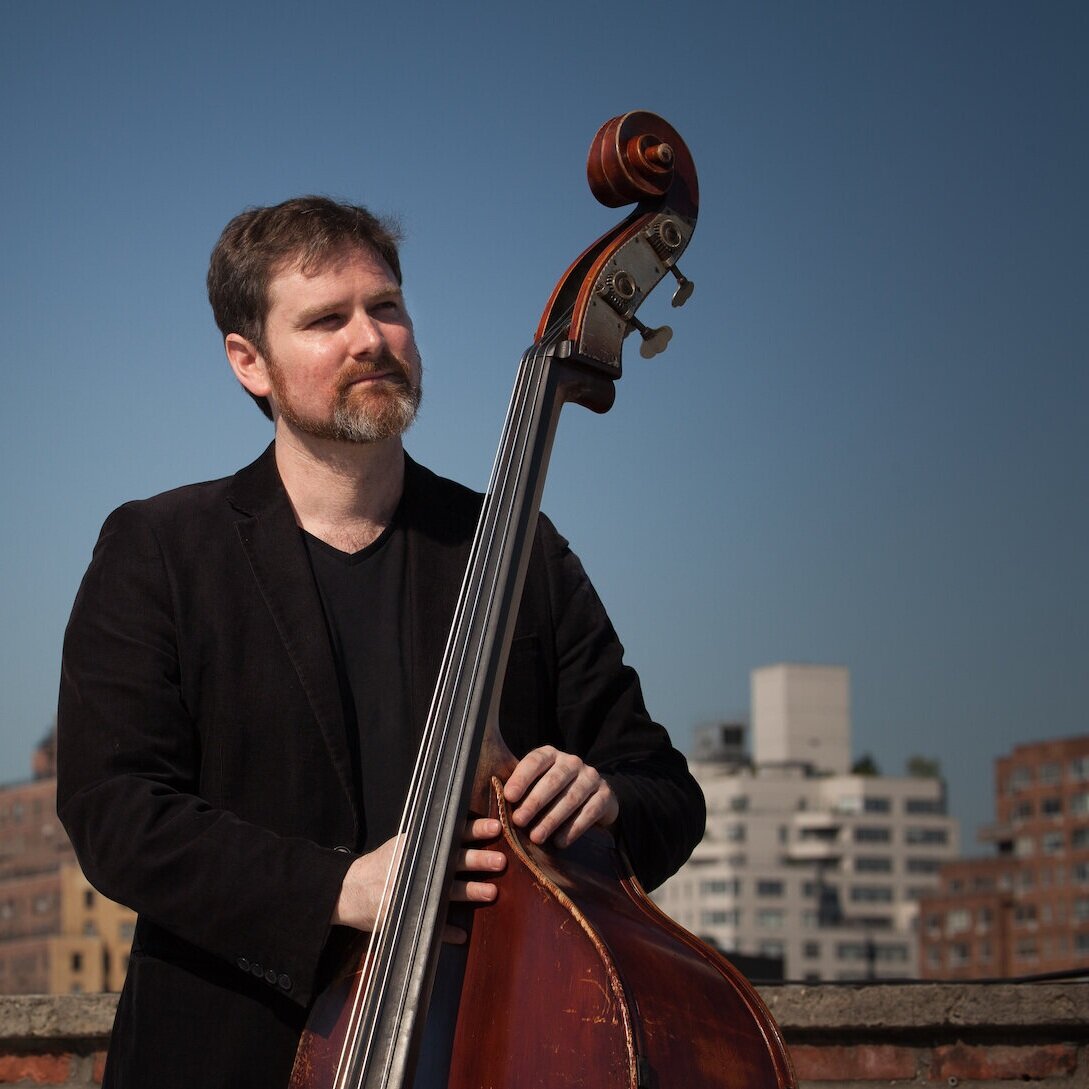 |
||
| Mike Block | Balla Kouyaté | Edward Pérez |
What better way to demonstrate the impact of cultural exchanges than actually to experience this form of “soft power” in action. A trio of Silkroad musicians of different cultural backgrounds will present a concert for our Mid-Coast Community. Silkroad is an organization established in the 1990’s by cellist YoY Ma to “advance global understanding, deepen learning, and promote cross-cultural collaboration.” The performances of Silkroad musicians provide a clear demonstration of the powerful impact when different cultures work together. Ben Hartley, the Executive Director of Silkroad, will introduce the trio and speak about the work of Silkroad and its global impact.